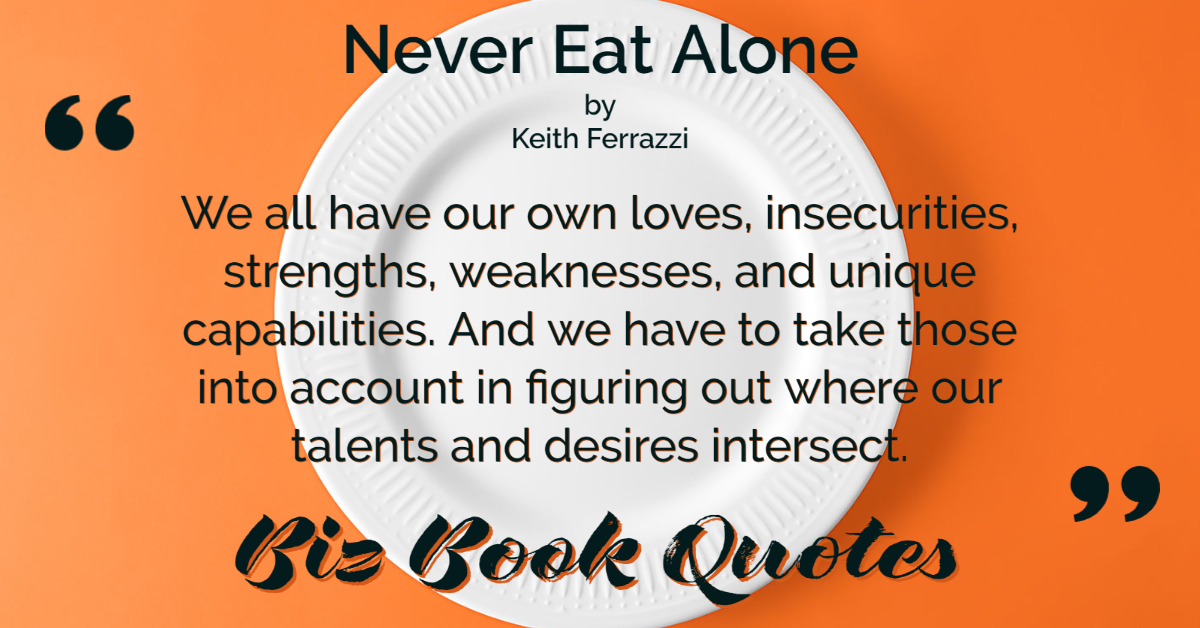 |
We all have our own loves, insecurities, strengths, weaknesses, and unique capabilities. And we have to take those into account in figuring out where our talents and desires intersect.
|
26 |
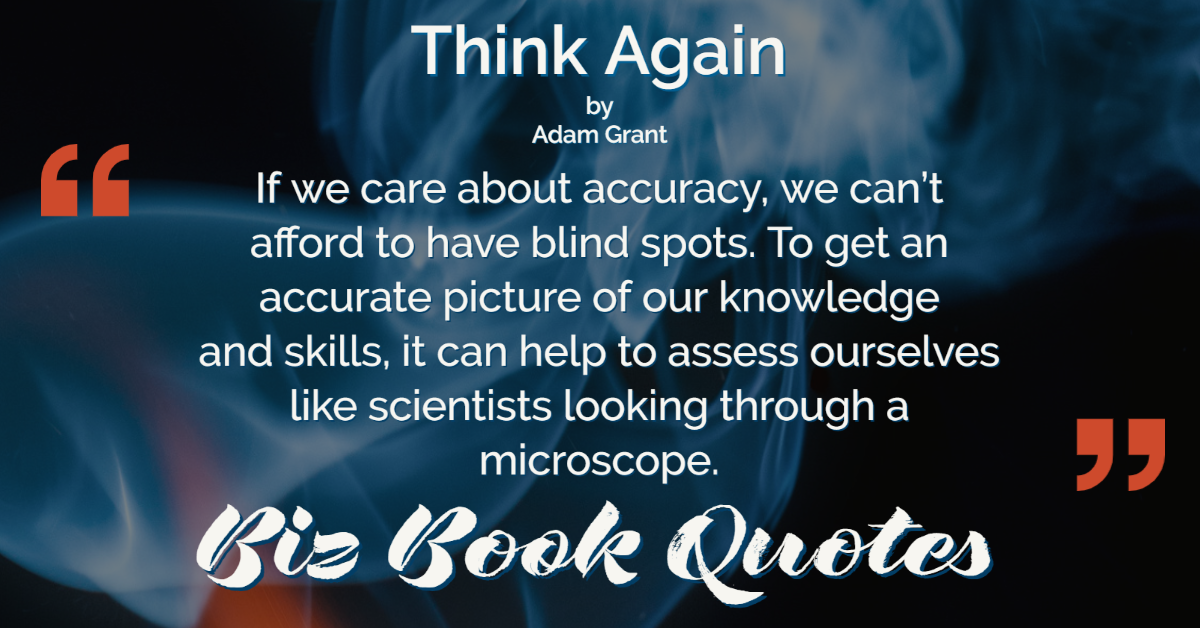 |
If we care about accuracy, we can’t afford to have blind spots. To get an accurate picture of our knowledge and skills, it can help to assess ourselves like scientists looking through a microscope.
|
48 |
 |
To sort out the various interests of each side, it helps to write them down as they occur to you. This will not only help you remember them, it will also enable you to improve the quality of your assessment…
|
51 |
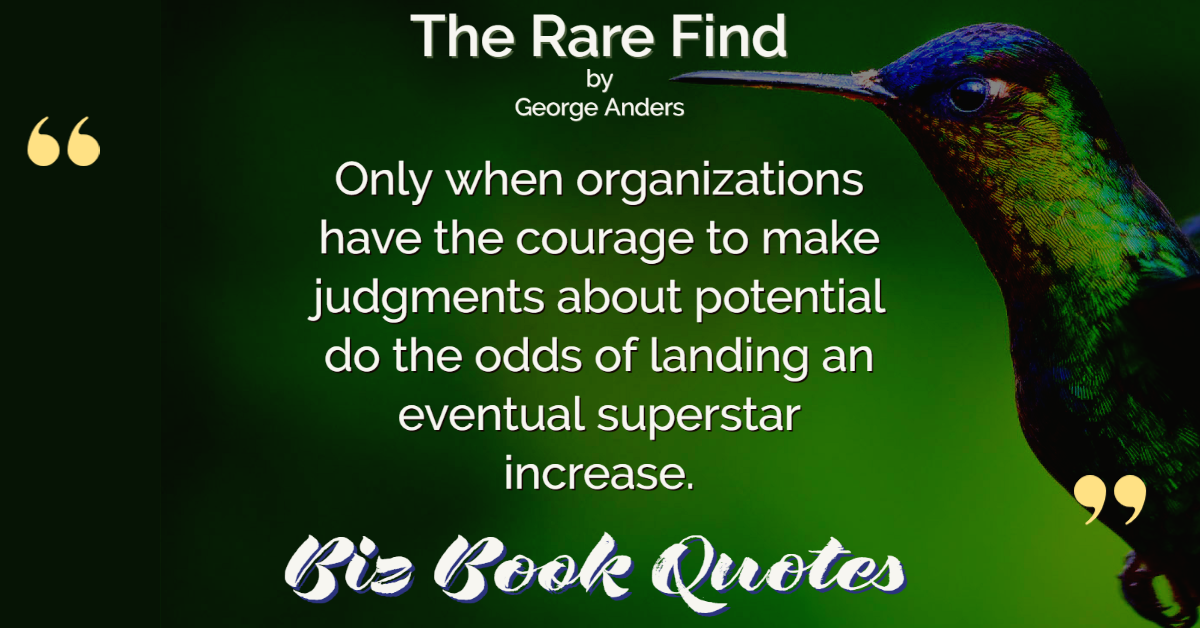 |
Only when organizations have the courage to make judgments about potential do the odds of landing an eventual superstar increase.
|
75 |
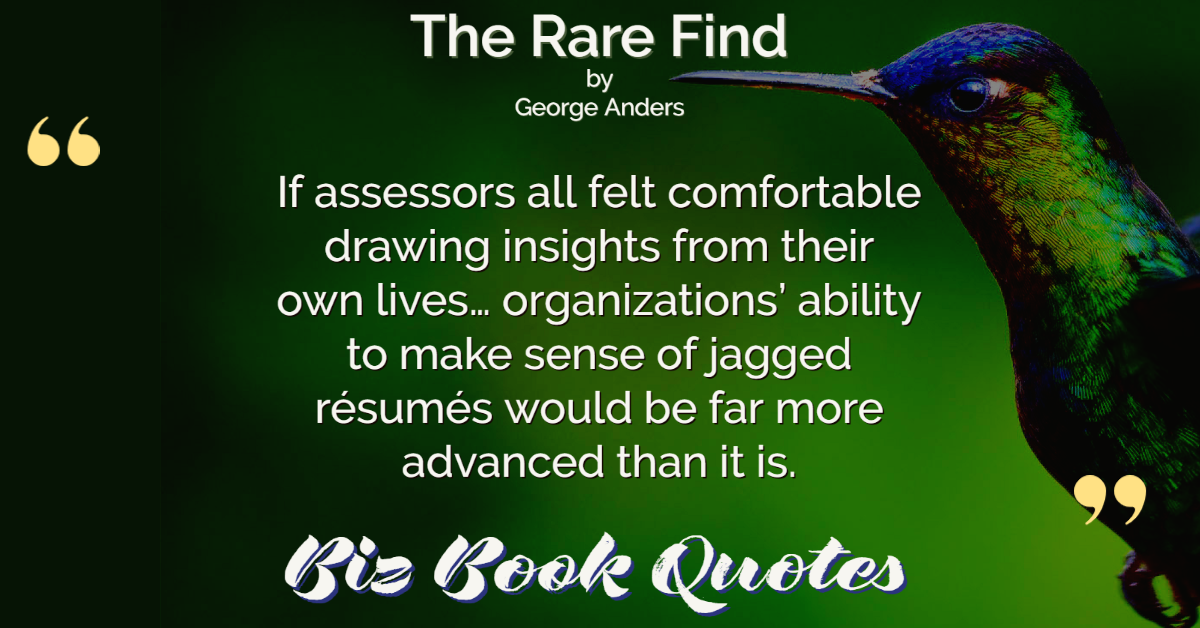 |
If assessors all felt comfortable drawing insights from their own lives… organizations’ ability to make sense of jagged résumés would be far more advanced than it is.
|
87 |
 |
…it’s easy to say that [fringe] candidates aren’t worth the time it would take to assess them. Yet… ignoring all of these outsiders can mean squandering access to a vast amount of talent.
|
128 |
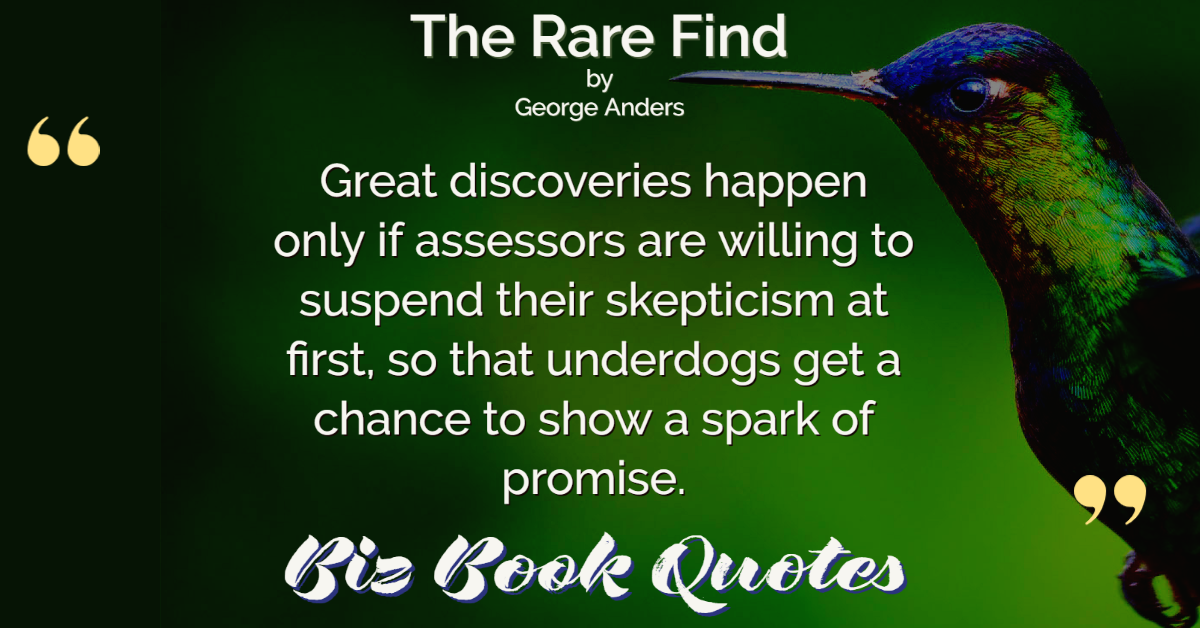 |
Great discoveries happen only if assessors are willing to suspend their skepticism at first, so that underdogs get a chance to show a spark of promise.
|
130 |
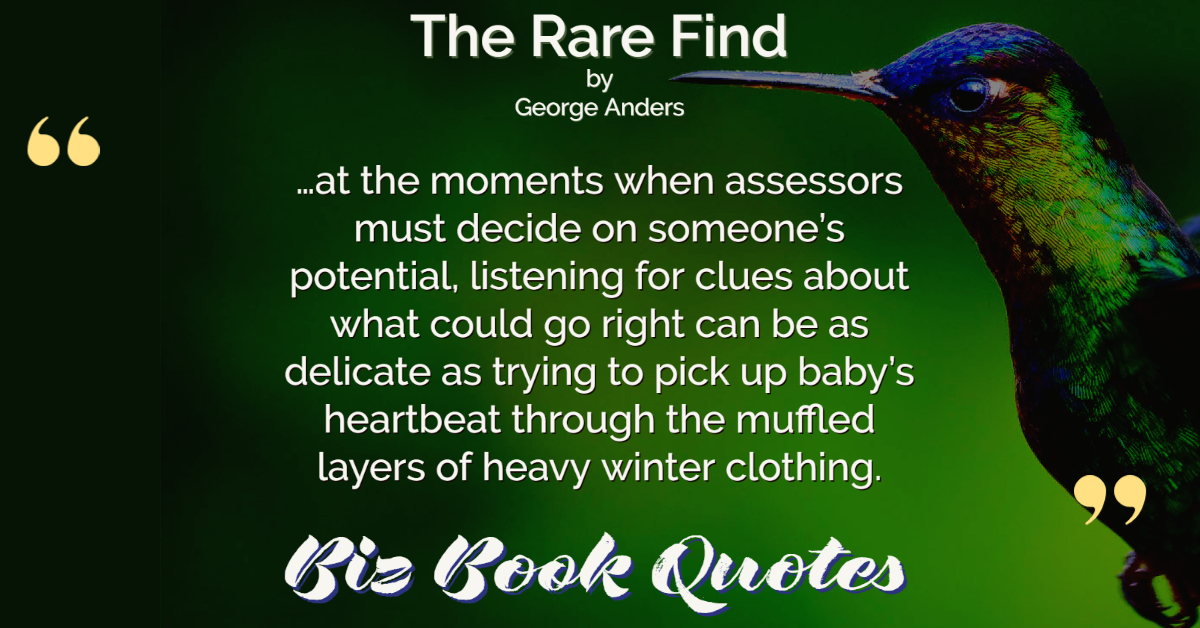 |
…at the moments when assessors must decide on someone’s potential, listening for clues about what could go right can be as delicate as trying to pick up baby’s heartbeat through the muffled layers of heavy winter clothing.
|
152 |
 |
The best assessors in any field look at people differently… These judges all have the courage to focus on candidates’ underlying character and motivation, rather than sticking merely to classic measures of experience.
|
236 |
 |
The great unexpected discoveries happen only if assessors are willing to suspend their skepticism at first, so that the underdogs get a chance to show a spark of promise.
|
239 |